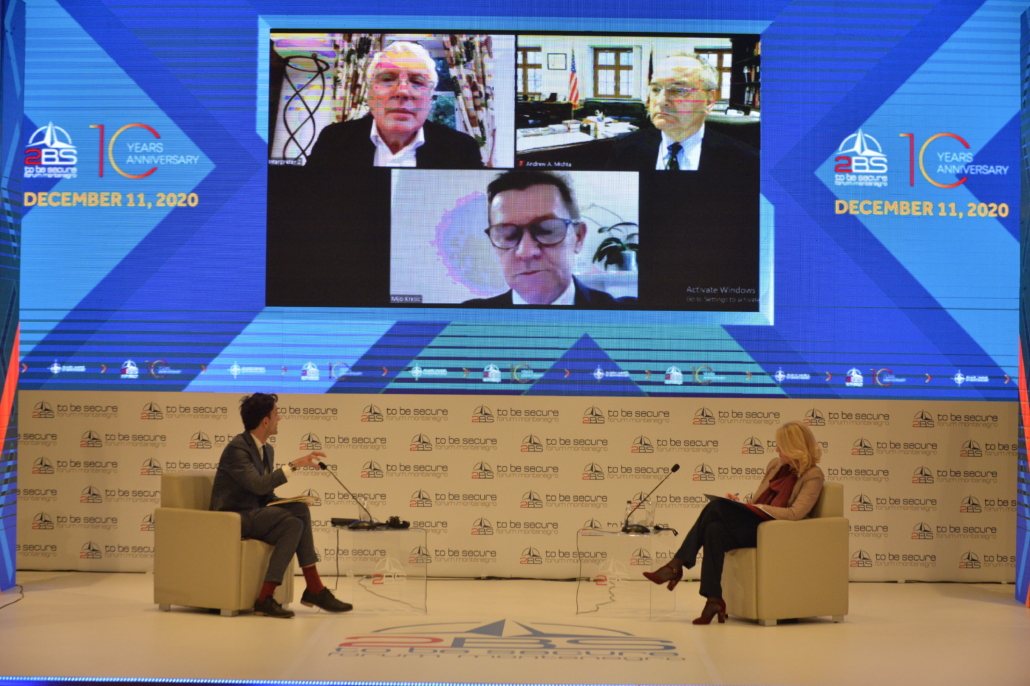Minister of Defense of the Government of Montenegro Olivera Injac stated that the NATO alliance was facing numerous security challenges, but that the most important thing was to preserve unity, solidarity, and coherency.
At the panel entitled #NATO2030: Adapting to the New Security Challenges and New Frontiers, Injac emphasized that in challenging times such as this year, NATO should demonstrate that it was strong enough to adapt to these challenges.
Through history, the Alliance proved that it could adapt to all the challenges. However, right now we should not only adapt but also anticipate the challenges and dangers; we should bear in mind both the things that could be predicted and those that could not, Injac said.
As a special value of the Western military alliance, Injac emphasized both its defense power and the values that the Alliance was cultivating and promoting, and which were improving the society and democracy, giving national politics of the countries the credibility.
Mijo Krešić, Deputy Minister of Defense of Bosnia and Herzegovina, said that NATO acted as a stabilizing factor in Bosnia and Herzegovina.
The current times are challenging and we should respond to them, but due to the lack of consensus in B&H, our efforts to access NATO are very slow, he said, expressing the regret that a high number of B&H citizens was not aware of the benefits that NATO membership provides. If we become a NATO member state, we will generate significant progress in our country, he said.
Andrew Michta, Dean of the College of International and Security Studies at George Marshall Center, warned to the complexity of relations on the global scene. Instead of the Cold War world division on two powers, when China was just a small regional player, today’s power ratio is completely different. While Russia is investing in its nuclear capacities wanting to revive the post-war division, it was not until recently and in a short time that China made an unimaginable step forward, and started its domination on the global scene using the values of liberal democracy, said Michta.
The crucial issue for the NATO Allies is how to respond to a challenge of such scope and it seems to me that the key point is how to rebuild the combat power of the Alliance, he said.
Reminding on the great Chinese investment in the armed forces, especially the navy, and its presence on the Pacific, Michta emphasized Europe’s need to invest in the neglected military power. However, he fiercely opposed the creation of a special EU army, considering that it would only weaken the combat power of the allies since it would lead to defense fragmentation.
NATO is the most valuable thing that the allies have and they need to reach consensus on the way they perceive not only Russia but China as well, Michta said.
He reminded that NATO Alliance provided the longest period of peace and prosperity with its existence, not only as a military power but also by promoting the values it was cultivating, which were leading to the prosperity of a society.
Jamie Shea, Professor of Strategy and Security at the University of Exeter, said that the problem of the military alliance was that it was waiting for the problems to emerge and then responded to them. NATO needs to anticipate the problems in order to respond to them more efficiently.
Our enemies do not want to beat us in combat, they are threatening to our lifestyle, they are present in all fields, undermining our trust in democratic values and exposing us to everyday pressures, especially through numerous pieces of disinformation that they are launching. Sometimes, these pressures are different. Look at what China is doing to Australia, Taiwan, what kind of pressure it is exerting, and in what ways it succeeds in doing so, Shea stated.
He believes that democratic governments need to train their citizens to recognize these threats in order to fight them successfully. All citizens need to unite in the defensive front since it is a threat to our lifestyle, he concluded.
